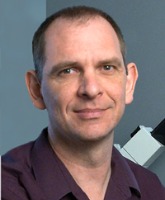非常抱歉,
你要访问的页面不存在,
非常抱歉,
你要访问的页面不存在,
非常抱歉,
你要访问的页面不存在,
验证码:

职称:Professor of Chemistry Director of Macromolecular Science and Engineering, College of Engineering
所属学校:University of Michigan-Ann Arbor
所属院系:epartment of Chemistry
所属专业:Chemistry, General
联系方式:734.763.2283
Education Ph.D., Cornell University
The interface region where two solids meet is critically important in such disparate areas as microelectronics, catalysis, and biology. Yet, understanding and controlling the structure and properties of interfaces remains a difficult challenge. Our research group focuses on understanding the structure, reactivity and physical properties of interfaces in a broad sense, studying the interfaces, themselves, as well as model systems ranging from solution soluble small molecules, clusters and polymers, to interfaces synthesized using ultrahigh vacuum surface science techniques. A study of the Si/SiO2 interface, the heart of solid modern transistor devices, is underway using silicon oxide clusters such as H8Si8O12. The clusters allow the formation of a model Si/SiO2 interface with specific structural details such as coordination environment about silicon and oxygen and Si-O ring size controlled at the molecular level. Using the model interfaces as benchmarks, we can then set about the complicated task of interpreting the spectroscopic information obtained regarding the structure and reactivity of the Si/SiO2 interface. Reactions involving hydrogen are of particular interest because of the role hydrogen plays in device breakdown and failure. The primary techniques are X-ray Photoelectron Spectroscopy, Infrared Spectroscopy and Scanning Tunneling Microscopy. We are also studying Low-Dielectic Constant Materials such as hydridosilsesquioxane (HSQ) resin for applications as interlayer dielectrics. As part of the Center for Biologic Nanotechnology at the University of Michigan, we are studying the development of polymer-based drug transport agents and their interactions with lipid bilayers, organelles, and cells. This project is part of a National Cancer Institute funded project designed to reinvent chemotherapy. The group also has a long standing interest in molecular main group chemistry with a special focus on Germanium. We have recently discovered CH-activation chemistry using a mixed Ge(II)/aryl halide reagent. We are vigorously pursuing this avenue of research.